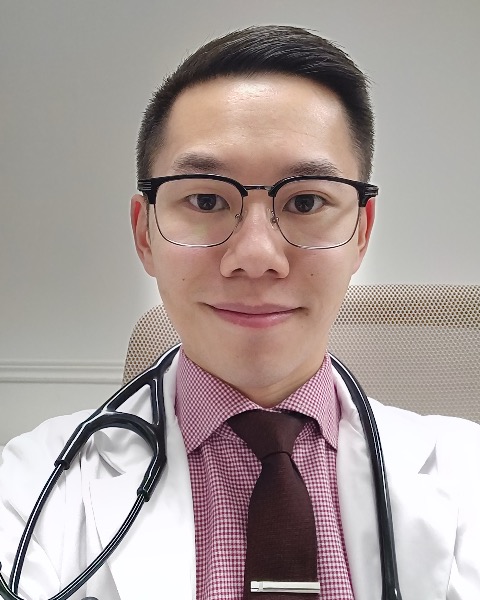Breast
E19: Delays in breast cancer surgery during the COVID-19 pandemic: A population-based analysis

Gary Ko, MD (he/him/his)
Clinical and Research Associate
Princess Margaret Cancer Centre, University Health Network
Toronto, Ontario, Canada
Gary Ko, MD (he/him/his)
Clinical and Research Associate
Princess Margaret Cancer Centre, University Health Network
Toronto, Ontario, Canada- AR
Amanda Roberts, MD, MSc
Breast Surgical Oncologist
Odette Cancer Centre, Sunnybrook Health Sciences Centre, United States - QL
Qing Li, MMath
Analyst
IC/ES, United States - NL
Ning Liu, PhD
Methodologist
IC/ES, United States - TZ
Toni Zhong, MD, MHS
Plastic and Reconstructive Surgeon
Princess Margaret Cancer Centre, University Health Network, United States - EA
Eitan Amir, MD, PhD
Medical Oncologist
Princess Margaret Cancer Centre, University Health Network, United States - AK
Anne Koch, MD, PhD
Radiation Oncologist
Princess Margaret Cancer Center, University Health Network, United States - AC
Andrea Covelli, MD, PhD
Surgeon
Department of Surgery, University of Toronto, Toronto, ON, Canada, United States - VF
Viviane Frietas, MD, MSc
Breast Radiologist
Princess Margaret Cancer Centre, University Health Network, United States - AE
Antoine Eskander, MD,ScM
Head and Neck Surgical Oncologist
Odette Cancer Centre, Sunnybrook Health Sciences Centre, United States - TC
Tulin D. Cil, MD, MEd
Breast Surgical Oncologist
Princess Margaret Cancer Centre, University Health Network, United States
ePoster Abstract Author(s)
Submitter(s)
Author(s)
Introduction: Operating room access was restricted at various times during the COVID-19 pandemic, which resulted in triaging of non-urgent cases, including breast cancer (BC) surgery. Recent studies have identified treatment delays during the immediate pandemic time period, but have been from single institutions with limited follow-up. The objective of this study was to assess the impact of the pandemic on wait times for BC surgery at a population level.
Methods:
Methods: We identified BC patients between Jan 2018 - Nov 2021 in Ontario, Canada and divided based on when they were diagnosed: pre- (Jan 1, 2018 - Mar 14, 2020), immediate (Mar 15 - Jun 13, 2020), and peri-pandemic (Jun 14, 2020 - Nov 30, 2021). Time to event analysis was conducted for time to first BC surgery. Subgroup analysis was conducted for patients who underwent neoadjuvant chemotherapy (NAC).
Results:
Results: The cohort consisted of 36639 BC patients. The probability of undergoing BC surgery was significantly lower (i.e. longer wait times) for patients diagnosed in the immediate & peri-pandemic period (log-rank P < 0.001; Figure 1). At 8 weeks from diagnosis, the probability of undergoing surgery was 65.1% (95% CI: 64.5-65.8%) for patients diagnosed in the pre-, 56.1% (95% CI: 53.6-58.6%) for immediate, & 59.0% (95% CI: 58.2-59.8%) for peri-pandemic period. 80% of patients had BC surgery by 5.4 mos, 5.9 mos, & 6.0 mos in each respective period. Among 6121 (16.7%) of patients who received NAC, the probability of undergoing surgery was similar for patients diagnosed in the pre & peri-pandemic periods, but was higher (i.e. shorter wait time) for patients diagnosed in the immediate pandemic period (log-rank P < 0.001). At 6 months from diagnosis, the probability of surgery for patients who received NAC was 50.7% (95% CI: 48.9-52.5%), 61.6% (95% CI: 56.6-66.6%), & 50.9% (95% CI: 49.0-52.8%) for patients diagnosed in the pre-, immediate, & peri-pandemic periods. 80% of NAC patients had surgery by 8.2 mos, 7.2 mos, & 8.0 mos in each respective period.
Conclusions:
Conclusions: In this large population-based study of BC patients, we identified a delay in time to surgery in the immediate pandemic period that persisted into the peri-pandemic period. However, among patients receiving NAC there was a shorter wait time during the immediate pandemic and wait times for this group have returned to pre-pandemic levels. This is likely due to surgical prioritization of this group, despite pandemic related resource restrictions. Further research is needed to explore how regional variability interacted with surgical treatment timelines.
Learning Objectives:
- To describe the impact of the pandemic on wait times for breast cancer surgery.
- To describe how wait times have changed over the pandemic time period.
- To describe differences in waits times during the pandemic for patients undergoing neoadjuvant chemotherapy.
